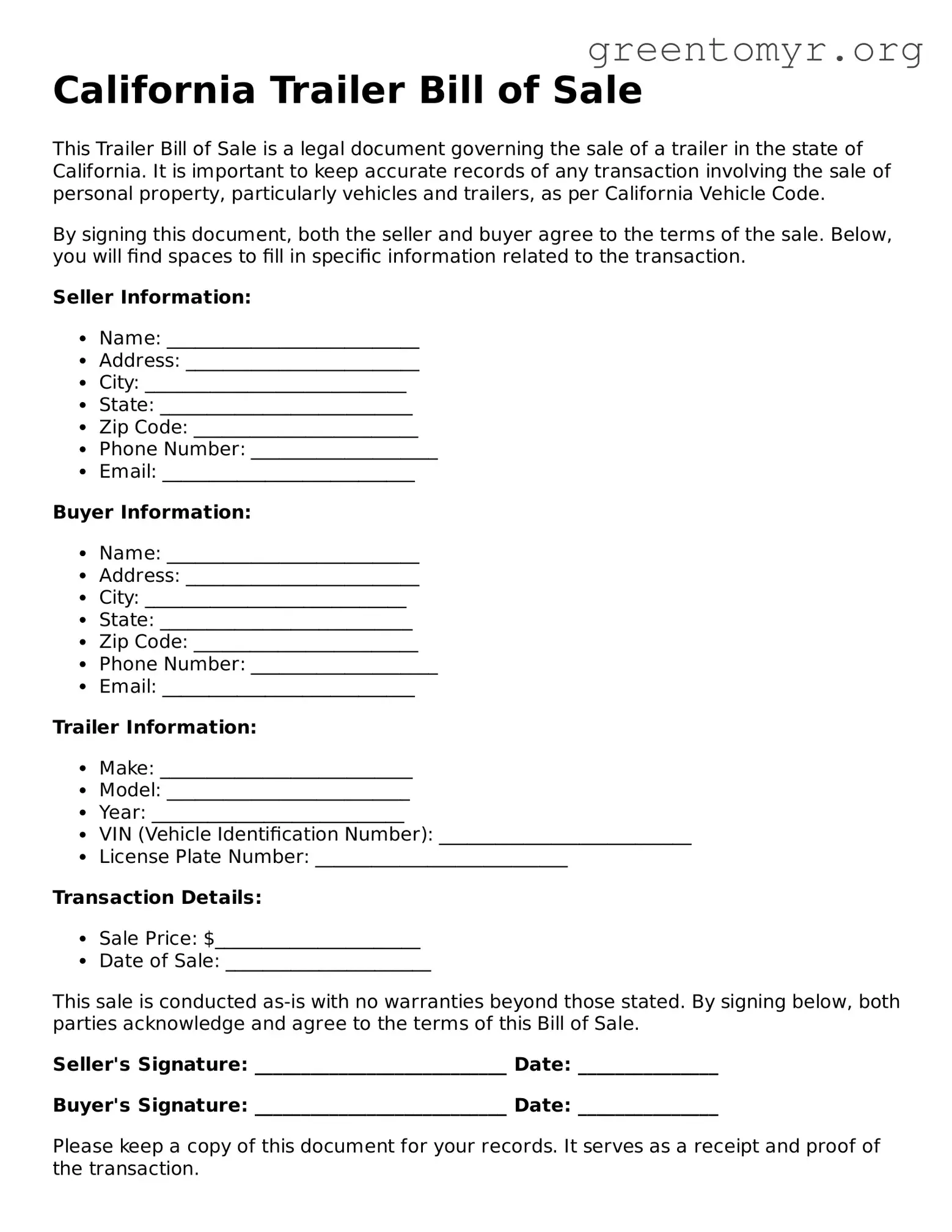When filling out the California Trailer Bill of Sale form, individuals often overlook critical details that can lead to complications. One common mistake is not providing complete information about the trailer. Essential details like the Vehicle Identification Number (VIN), make, model, and year must be accurately listed to ensure that the bill of sale is valid. Missing or incorrect information can create challenges in registering the trailer later.
Another frequent error involves signatures. Both the seller and the buyer must sign the document, and failing to do so can nullify the transaction. Some individuals mistakenly assume that only one signature is needed, which can cause issues when local authorities or the Department of Motor Vehicles (DMV) require proof of both parties' consent to the sale.
Individuals may also misunderstand the implication of the bill of sale. It serves as a legal document proving the sale, not as a title transfer. Some people fail to realize that they need to complete a separate title transfer, which is crucial for the new owner to register the trailer in their name effectively.
Another mistake to note is neglecting to fill in the sale price. This information is essential for both tax obligations and value assessment. Omitting the sale price can raise questions during an audit or when the new owner tries to register the trailer.
People often forget to check local requirements. While the Trailer Bill of Sale is a standard form, additional documentation or specific formats may be required in certain counties or municipalities. Not doing the research beforehand can lead to unnecessary delays or complications.
Some individuals do not make copies of the completed bill of sale. Retaining a personal copy is important for record-keeping and can serve as protection in case disputes arise in the future. Without it, one might find themselves at a disadvantage if questions regarding the sale emerge.
Error in the date can also create problems. The date of sale must be accurate, as it serves as the official record of when the transaction took place. An incorrect date could affect the buyer's ability to register the trailer or impact taxes owed on the sale.
While reviewing the form, individuals sometimes overlook the importance of clear handwriting. Information written in an unclear manner can lead to misunderstandings regarding the transaction. Accurate, legible writing is vital for ensuring that all parties involved comprehend the details of the sale.
Another mistake is procrastination regarding the submission process. Some people complete the form but delay taking it to the DMV for title transfer. Timely submission is essential for the new owner to obtain proper registration and avoid penalties associated with late registration.
Lastly, misunderstanding the differences between a bill of sale and a purchase agreement can create confusion. While both documents are important, the bill of sale specifically serves to confirm the transaction and should not be confused with more complex contracts that may include additional terms and conditions. Being clear about the purpose of each document helps facilitate a smoother sale process.
